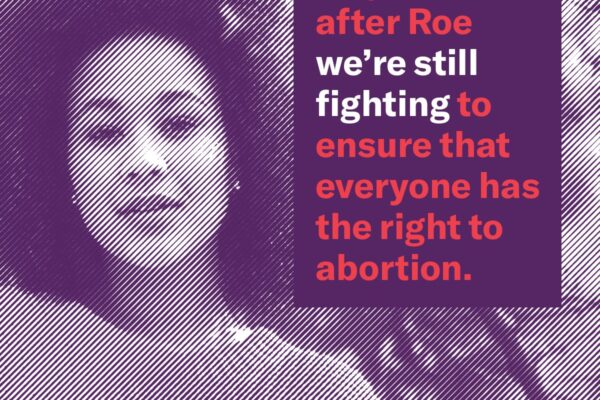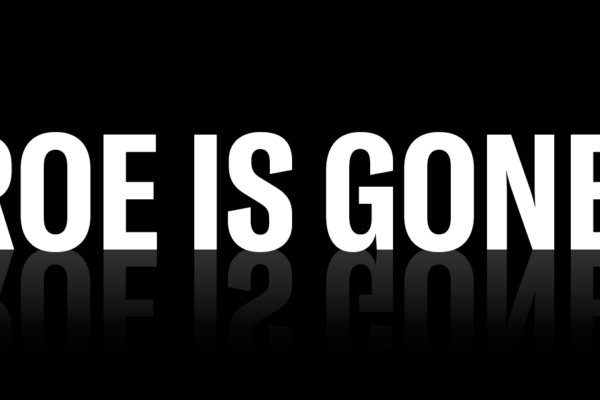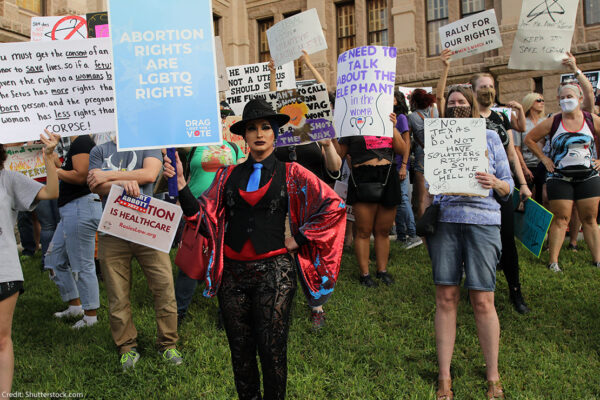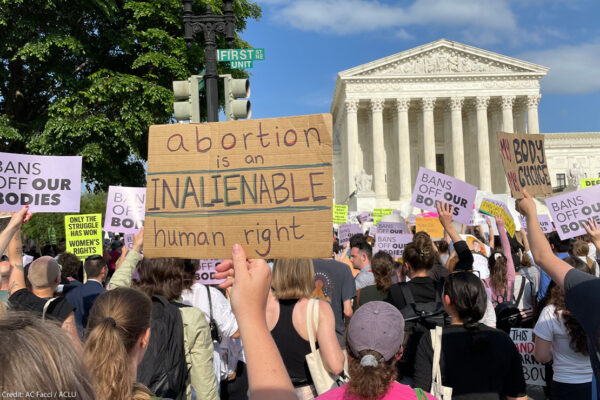Supreme Court Issues Devastating Decision Overturning Roe v. Wade; Abortion is Still Legal in Minnesota
The U.S. Supreme Court issued a shameful ruling today overturning Roe v. Wade — the landmark decision recognizing the constitutional right to abortion nearly 50 years ago. Today’s ruling will allow anti-abortion politicians to ban abortion in states across the country, which will force countless people to remain pregnant and give birth against their will. The ruling in this case, Dobbs v. Jackson Women’s Health Organization, will set off a chain reaction with states banning abortion and criminalizing essential health care throughout entire regions of the country.
In Minnesota, abortion remains legal. Abortion access is protected under our state Constitution as an important privacy right under the Doe v. Gomez case. But there are numerous restrictions, and the right remains vulnerable.
Today’s U.S. Supreme Court’s decision is an unprecedented attack on women’s rights and reproductive freedom, and the effects will be immediate and far-reaching. Half the states in the country are expected to ultimately ban abortion, denying the 36 million women and other people who can become pregnant in those states the fundamental right to decide for themselves whether and when to become a parent.
Forcing someone to carry a pregnancy against their will has life-altering consequences, including enduring serious health risks from continued pregnancy and childbirth, making it harder to escape poverty, derailing educational and career plans, and making it more difficult to leave an abusive partner. This decision could also lead to people who have abortions or who miscarry being subject to suspicion, investigation, and arrest, and patients and doctors being thrown in jail.
“The Supreme Court’s devastating and unprecedented decision to take away a basic and fundamental right from half of our nation is shameful. Let us be clear that this ruling forces women to stay pregnant or give birth against their will,” said ACLU of Minnesota Executive Director Deepinder Singh Mayell. “It’s important to note that abortion is still legal in Minnesota for now, but politicians keep trying to chip away at this crucial right here too. The ACLU-MN will keep fighting to ensure abortion remains legal in Minnesota so people can make their own decisions about their bodies, their health and their families.”
Anti-abortion politicians won’t stop with Roe’s reversal and banning abortion state by state; extremists already have said they’ll work to ban abortion nationwide. In the face of this unprecedented attack on the bodily autonomy of women and people who can become pregnant, the ACLU of Minnesota is working with partners to send a clear message to lawmakers that they must do everything possible to protect and expand access to abortion.
Banning abortion will have an immediate and devastating impact on women, taking from them a right that has been central to their ability to plan their lives, families, and careers. But the burdens will disproportionately fall on women of color, those struggling to make ends meet, young people, rural residents, immigrants, and the LGBTQ+ communities. Today’s ruling will also have deadly consequences, with the harm falling hardest on Black women, who are three times more likely than white women to die during childbirth or shortly after. If abortion is banned nationwide, pregnancy-related deaths are estimated to increase by 21 percent nationwide, and by 33 percent among Black women.
“Abortion cannot truly be accessible unless everyone — in every corner of our country and every corner of our state — is able to get the care they need in their own communities,” Mayell said. “The ACLU of Minnesota is committed to making that vision a reality by working with thousands of supporters across the state to make our voices heard in the streets, online, and at the ballot box until every person has the freedom to access the care they need without obstacles, shame, stigma, or harassment.”
###
Related Content

Before and Beyond Roe v. Wade: Five Historic Cases in Minnesota’s Fight for Reproductive Freedom
Stay Informed
Sign up to be the first to hear about how to take action.
By completing this form, I agree to receive occasional emails per the terms of the ACLU’s privacy statement.
By completing this form, I agree to receive occasional emails per the terms of the ACLU’s privacy statement.




